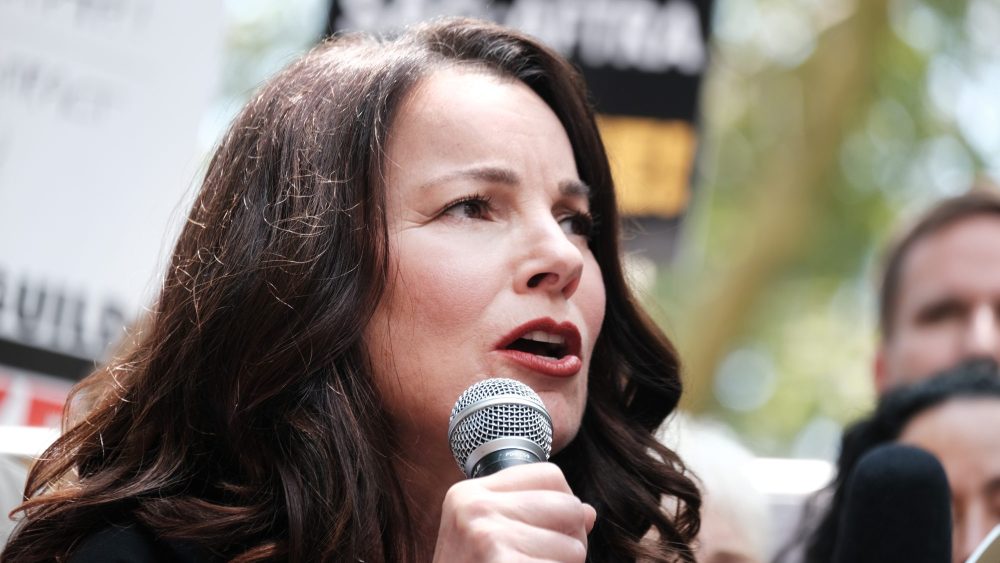- cross-posted to:
- technology@lemmy.world
- cross-posted to:
- technology@lemmy.world
Archive link: http://archive.today/Z5F3X
With one strike already underway, SAG-AFTRA announced Friday that it will seek authorization for a second strike against the major video game companies.
The union has a separate contract with the major video game makers, including Activision and Electronic Arts. The contract was originally due to expire last Nov. 7, but was extended for a year to allow for further discussions. The talks are due to resume on Sept. 26.
In a statement, SAG-AFTRA’s president, Fran Drescher, blasted the video game companies for their “greed and disrespect.”
SAG-AFTRA went on strike against the video game companies in October 2016. The strike lasted 11 months.
This time around, the union is seeking rest periods and safety protections, in addition to the wage increases and AI provisions. The union wants an on-set medic for video games, similar to current provisions in TV and film, and a prohibition against stunts during self-taped auditions.
Ballots are due at 5 p.m. PT on Sept. 25. The union will also hold informational meetings for affected members during the voting period.



[3/3]
As far as unionizing goes - it’s a mixed bag. I myself am very pro-union; I was a Teamster for years (Local 495). And many gamedevs are left-leaning (but not all! I knew some MAGA/QAnon guys). This in turn makes them supportive of unions on paper.
But when conversations stopped being theoretical and started being, “No, really, why wouldn’t you?”, the holdouts tend to think:
Union leadership is corrupt/greedy, and they don’t want to give union leaders money for “nothing” (as they see it)
Being in a union means everyone would need to be bound to strict regulations - keeping exact track of time worked, having exact lunch breaks, documenting everything. As-is in the game industry, the “standard” at most places is hands-off, take lunch whenever, stay at lunch however long you want, clock in/out whenever, nobody questions you as long as your work is getting done. People like this and don’t want to risk losing it.
Being in a union threatens close relationships with management. I can say that when I was a Teamster, management was outright adversarial and conversations with them weren’t fun. In the game industry, management is quite literally my friends and people I chill out with. There’s a very, very blurry line between “friends” and “bosses” - some bosses are horrible, to be sure, but the general vibe is casual.
There’s a lot of benefits in the office like free snacks, free swag, a place to chill out and play games at work, etc. People are afraid that this would count as “compensation” and thus being unionized would mean that you’d have to pay for snacks or swag or whatever - or that it could be taken away as retaliation from management.
Retaliation is a thing. It’s illegal. US government doesn’t care. Corpos get a slap on the wrist because of plausible deniability. EA has been downsizing recently and they “coincidentally” cut the contract with a QA team that just unionized. Hmm. That sort of stuff has a chilling effect - EA has no qualms shutting down studios. Why rock the boat and risk being locked out?
There are counterarguments for each of those points. Benefits can be made contractual, union leadership isn’t necessarily corrupt (although I did dislike the leadership of my Teamster local - for being too close to management and too soft). Etc. But it is an uphill battle if people are generally already happy where they work - and the jobs are plentiful enough that people can be comfortable moving studios until they find somewhere that lets them vibe.
We’ll see what happens if the market continues to tighten.
I can see a place like Blizzard unionizing, just from the horror stories I’ve heard. Maybe Epic as well. But it’s a lot harder to make a union happen in today’s day and age.
100k as a junior? Money does really work differently in the US. I earned 5.5 euro an hour without any benefits in Berlin.